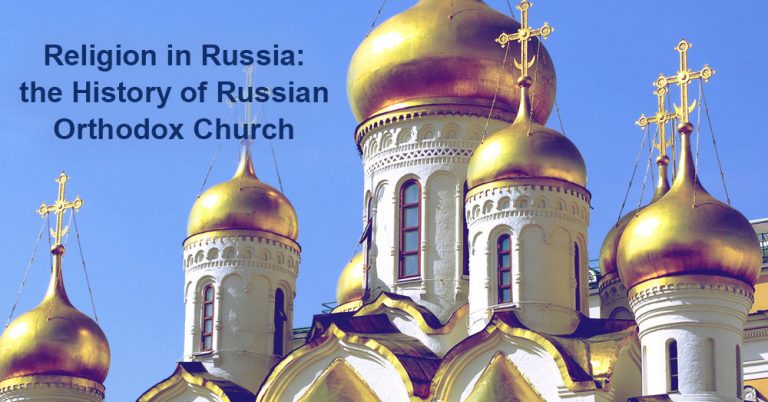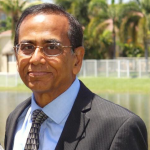
That’s what this is all about, “spiritual space” — a terrifying phrase steeped in over a thousand years of Russian religious history.
Nazarul Islam
Once upon a time, Russia’s Christian Emperor Basil II, who was based in the glorious city of Byzantium, was faced with an uprising of his treacherous generals—particularly at a time when reached out to his enemies, the pagans over in the land of the ‘‘Rus”. Basil II was a clever deal maker.
If Vladimir of the ‘Rus’ would help him put down the revolt, he would give him the hand of his sister in marriage. This was a status changer for Vladimir: the marriage of a pagan to an imperial princess was unprecedented. But first Vladimir would have to convert to Christianity.
Returning to Kyev in triumph, Vladimir had proceeded to summon the whole city to the banks of the river Dnieper for a mass baptism. The year is 988. This is the founding, iconic act of Russian Orthodox Christianity. It was from here that Christianity would spread out and merge with the Russian love of the motherland, to create a powerful brew of nationalism and spirituality. In the mythology of 988, it was as if the whole of the Russian people had been baptized.
Vladimir was declared a saint. When the Byzantine Empire fell, the Russians saw themselves as its natural successor. They were a “third Rome”.
Soviet Communism tried to crush all this — but failed. And in the post-Soviet period, thousands of churches have been built and re-built. Though the West thinks of Christianity as something enfeebled and declining, in the East it is thriving. Back in 2019, Patriarch Kirill, the head of the Russian Orthodox Church, boasted that they were building three churches a day.
Last year, they opened a Cathedral to the Armed Forces an hour outside Moscow. Religious imagery merges with military glorification. War medals are set in stained glass, reminding visitors of Russian martyrdom. In a large mosaic, more recent victories — including 2014’s “the return of Crimea” — are celebrated. “Blessed are the peacemakers” this is not.
At the heart of this post-Soviet revival of Christianity is another Vladimir. Vladimir Putin. Many people don’t appreciate the extent to which the invasion of Ukraine is a spiritual quest for him. The Baptism of Rus is the founding event of the formation of the Russian religious psyche, the Russian Orthodox Church traces its origins back here. That’s why Putin is not so much interested in a few Russian-leaning districts to the east of Ukraine. His goal, terrifyingly, is Kyev itself.
He was born in Leningrad — a city that has reclaimed its original saint’s name — to a devout Christian mother and atheist father. His mother baptized him in secret, and he still wears his baptismal cross. Since he became President, Putin has cast himself as the true defender of Christians throughout the world, the leader of the Third Rome. His relentless bombing of ISIS, for example, was cast as the defense of the historic homeland of Christianity.
And he will typically use faith as a way to knock the West, like he did in this speech in 2013:
“We see many of the Euro-Atlantic countries are actually rejecting their roots, including the Christian values that constitute the basis of Western civilization. They are denying moral principles and all traditional identities: national, cultural, religious and even sexual. They are implementing policies that equate large families with same-sex partnerships, belief in God with the belief in Satan.”
Putin regards his spiritual destiny as the rebuilding of Christendom, based in Moscow. When the punk band Pussy Riot wanted to demonstrate against the President, they chose to do so in the Cathedral of Christ the Savior in Moscow, a vast white and gold edifice, demolished by the Soviets and rebuilt in the Nineties. It is a synthesis of Russia’s national and spiritual aspirations. It’s not just Russia, it is “Holy Russia”, part religious project, part extension of Russian foreign policy.
Speaking of Vladimir’s mass baptism, Putin explained: “His spiritual feat of adopting Orthodoxy predetermined the overall basis of the culture, civilization and human values that unite the peoples of Russia, Ukraine and Belarus.” He wants to do the same again. And to do this he needs Kyev back.
“The spiritual choice made by St Vladimir still largely determines our affinity today” Putin wrote only last year. “In the words of Oleg the Prophet about Kyev, “let it be the mother of all Russian cities”.
Into this religious intensity we can add some angry church politics. In 2019, the Ukrainian arm of the family of Orthodox churches declared its independence from the Russian Orthodox Church — and the nominal head of the Orthodox family, Bartholomew I of Constantinople, supported it. The Ukrainian president, Petro Poroshenko, described this as “a great victory for the devout Ukrainian nation over the Moscow demons, a victory of good over evil, light over darkness”.
The Russian Orthodox Church furiously rejected this claim to independence, stating that Ukraine belonged irrevocably to its “canonical territory”. This led to a historic split within the Orthodox family, with the Russian church rejecting the primacy of Bartholomew, declaring that they were no longer in communion with the rest of the Orthodox family.
Russian Foreign Minister, Sergey Lavrov denounced Bartholomew as an American stooge. Kirill even claimed the reversion of the Hagia Sophia – originally the global HQ of Orthodoxy – to a mosque in 2020 was “God’s punishment”. The Russian Church then proceeded to set up its own Dioceses around the world, especially in Africa. “They are taking to the streets with posters saying “Thank you, Putin! Thank you, Patriarch Kirill!”” was how the Russian church’s propaganda machine described it.
Such is the centrality of Ukraine in general, and Kyev in particular, to the imagination of the Russian church, they have been prepared to fracture the centuries old alliance of Orthodoxy. Again and again, it’s all about Ukraine, the imagined site of the mother church of the Rus.
This compliance of the Russian Orthodox Church with the political goal of a greater Russia has been shameful. Officially, at least, they make a big deal out of the claim that they stay out of politics. But that has never been true. In the post-Soviet era, the Orthodox Church was handsomely rewarded, not just with a grandiose state-backed church building program, but with involvement in lucrative business operations including the import of tobacco and alcohol worth $4 billion.
In 2016, Krill was photographed wearing a $30,000 Breguet watch. He has also called Putin “a miracle of God”. When Kirill says “the Lord will provide” he could easily be talking about his lords and masters over in the Kremlin. Few churches have sold out to the state more completely than the Russian Orthodox Church.
Last year, on the anniversary of the baptism of the Rus, Kirill preached to his people, urging them to stay true to Vladimir’s conversion and the blood of the orthodox martyrs. He told them to love “our homeland, our people, our rulers and our army”.
The Western secular imagination doesn’t get this. It looks at Putin’s speech the other evening, and it describes him as mad — which is another way of saying we do not understand what is going on. And we show how little we understand by thinking that a bunch of sanctions is going to make a blind bit of difference. They won’t. “Ukraine is an inalienable part of our own history, culture and spiritual space” Putin said.
That’s what this is all about, “spiritual space” — a terrifying phrase steeped in over a thousand years of Russian religious history.
_________________
 The Bengal-born writer Nazarul Islam is a senior educationist based in USA. He writes for Sindh Courier and the newspapers of Bangladesh, India and America. He is author of a recently published book ‘Chasing Hope’ – a compilation of his articles.
The Bengal-born writer Nazarul Islam is a senior educationist based in USA. He writes for Sindh Courier and the newspapers of Bangladesh, India and America. He is author of a recently published book ‘Chasing Hope’ – a compilation of his articles.